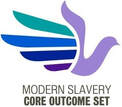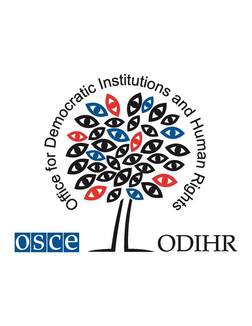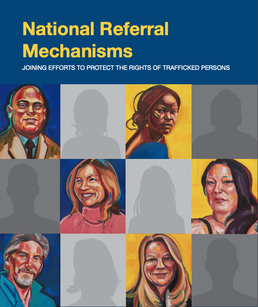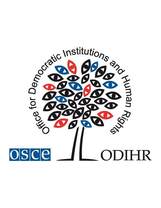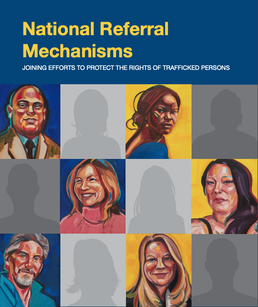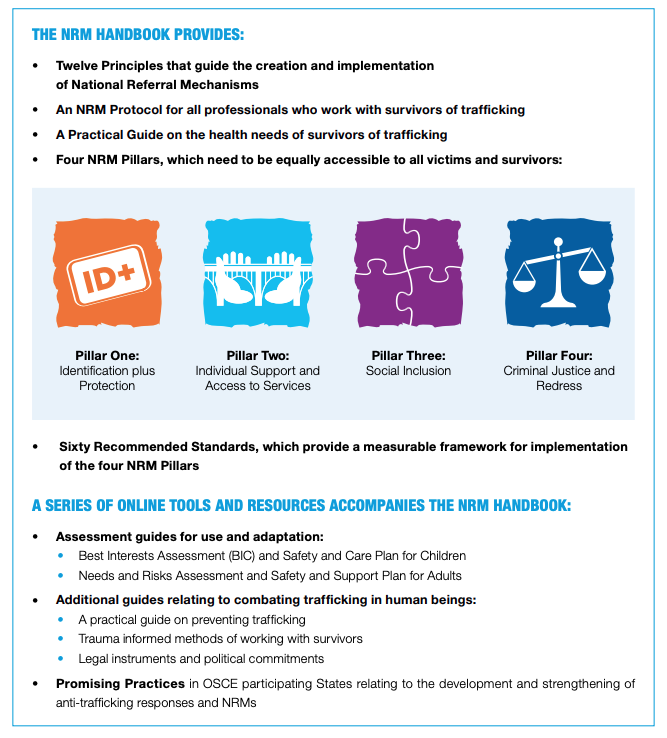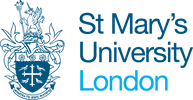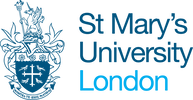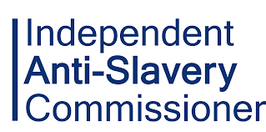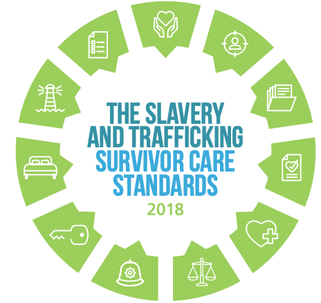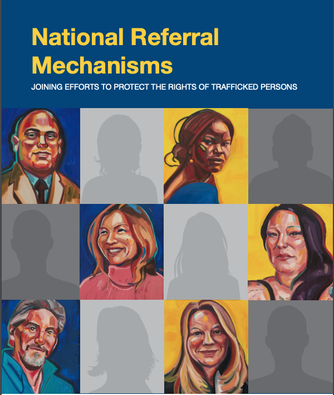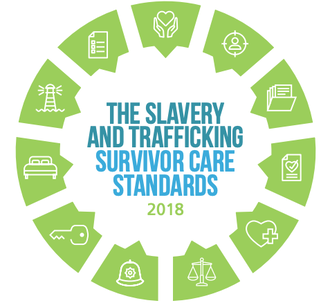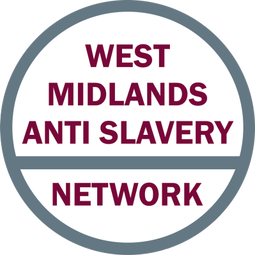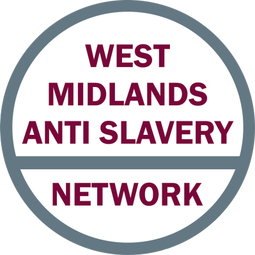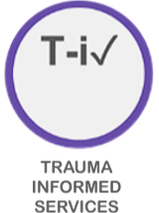MSCOS: Working with core outcomes as a set
|
|
x
There has not been enough collaborative work to ensure that when survivors of modern slavery come into the system, all the support is in place to empower them to become independent, personally stable, financially stable, with safe accommodation. Everyone has dreams of achievement, to make their way for themselves, for example, in training, vocational skills, business, but the system has gaps – it causes survivors to be stuck and there is no growth. If a person has only one of the core outcomes – for example, education; how do you expect them to focus, to do their best, to be able to study and achieve if they don’t have the others, if they can’t live safely, be financially independent enough to afford their basic needs, if they don’t have the right mental health support. How do you expect them to grow and leave the system? If the MSCOS is not in place a survivor may even be persuaded to return to their traffickers. It may sound strange, ‘why would a survivor who has gone through such a distressing situation with perpetrators consider going back to them?', but it happens because the system as it is does not enable them to feel safe, to be protected and to have hope for their future. |
Relevant Practice Models and Frameworks
for working with core outcomes as a set
for working with core outcomes as a set
To ensure that the MSCOS is embedded across the spectrum of practice for survivors, structural frameworks, professional training, umbrella organisations and hubs which reflect the delivery of all 7 core outcomes are needed. Some key examples of these are provided below.
National Referral Mechanisms
|
To read more about the International OSCE/ODHIR NRM Handbook, click below
x
The International OSCE/ODHIR NRM Handbook (2nd Edition, 2022) provides a multi-agency guidance model which all of the 57 OSCE participating States can adapt and apply within their own national systems to ensure that their National Referral Mechanisms meet the highest standards in both design and implementation.
The Handbook provides an overview of the working methods, procedures and services that are required across the four NRM ‘pillars’:
The NRM Handbook was informed by an international advisory panel convened by ODIHR to ensure multi-disciplinary input of anti-trafficking experts. Consultations included survivor leaders, government representatives, national rapporteurs, academics, lawyers, prosecutors, judges, law enforcement authorities, child specialists, mental and physical healthcare specialists, IGO and NGO anti-trafficking experts and practitioners. The expertise of international survivor leaders was central to the Handbook, and included ODIHR’s International Survivors of Trafficking Advisory Council (ISTAC).
|
|
Tiered, Multi-Agency Training To read more about St Mary's University London's Skills for Care Course, click below
x
St Mary's University London's module on Identification, support and care of victims of modern day slavery is aligned with Tier 3 of the Training Standards Framework for the Identification, Care and Support of the Victims and Survivors of Modern Slavery.
This module is aimed to meet the training and development needs of those who either:
This module provides the knowledge, understanding and practical skills for individuals to identify, support and care for victims of modern slavery that they may meet in their work. The module has a distinctive focus on practical knowledge and skills delivered across four major themes, and will be supported by online materials, teaching workshops led by experts in the field, and face-to-face group sessions to encourage and support reflective practice. There are six topics taught in this module
|
National Implementation To read more about the Independent Anti-Slavery Commissioner, click below
x
The Commissioner's role is to encourage good practice in the prevention, detection, investigation and prosecution of slavery and human trafficking offences, as well as in the identification of victims. The Commissioner is accountable through their strategic plan and annual reports, which the Secretary of State lays before Parliament, setting out the extent to which objectives and priorities are achieved.
Part 4 of the Modern Slavery Act 2015 sets out the role of the UK Independent Anti-Slavery Commissioner. The Commissioner's role is to encourage good practice in the prevention, detection, investigation and prosecution of slavery and human trafficking offences, as well as in the identification of victims. The Commissioner is accountable through their strategic plan and annual reports, which the Secretary of State lays before Parliament, setting out the extent to which objectives and priorities are achieved. At the current time, the UK has not replaced the previous Commissioner, Dame Sara Thornton, and the role has been open since May 2022. In the absence of a Commissioner, ‘a reduced office will continue to monitor modern slavery sector activity and developments, attend key meetings and maintain existing relationships. In the absence of a commissioner, IASC staff attending meetings or engaging with stakeholders will have no remit to provide views or take on or contribute to new work.’ There have also been some questions raised over the level of independence from the UK Home Office that may be exercised by the role of the Independent Anti-Slavery Commissioner in its current form. Independent national co-ordinators and rapporteurs on human trafficking have an annual meeting which is held jointly by the Council of Europe and the OSCE. They are responsible for monitoring the national implementation of anti-trafficking policies and reports findings. Their tasks include conducting assessments of patterns and trends in human trafficking and measuring the results of anti-trafficking activities. This includes collation of data, statistics and research in close co-operation with relevant civil society organizations and research institutions. They contribute to the development of national and international policies and strategies relevant to combatting trafficking in human beings and improves co-ordination and coherence between all NRM stakeholders and relevant agencies. They respond to, and address the annual report of the national NRM monitoring body. |
|
Collective Partnerships for Action
|
Innovatory Research
|
Helpful Resources
NRM Frameworks
|
To read more about the NRM Handbook, click below
|
To read more about The UK Slavery and Human Trafficking Survivor Care Standards, click below
|
|
x
|
x
|
Multi-agency operational hubs
To read more about the West Midlands Anti-Slavery Network, click below
x
|
The West Midlands Anti-Slavery Network unites and enables partner organisations to work in collaboration to end modern slavery, human trafficking and exploitation.
We do this by identifying gaps, influencing change and facilitating solutions in order to protect and advocate for the vulnerable in society. Our Vision To be recognised worldwide as leaders in multi-agency partnership working to eradicate modern slavery, whilst ensuring the victims are at the centre of every aspect of our work. |
Our Objectives
- Develop an effective regional multi agency anti-slavery network to raise awareness, reduce the threat and harm of slavery and rescue and support victims of slavery in the West Midlands geographical area
- Develop strategic partnerships and collaborations with other regional, national and international organisations to tackle modern day slavery, including networks, partnerships, agencies and learning establishments
Robin Brierly, Modern Slavery Consultant on Trafficking and Slavery says:
“If you were to give everyone a piece of paper and ask them to draw a structural diagram for the response to modern slavery in the UK, it would be impossible. You would have many different organisations and agencies with lines all over the place. How do we all join up? How can we cross refer? You need a clear victim care pathway, a recognizable structure that everyone can follow with a nucleus of knowledgeable people.
In the West Midlands, it is a bit easier, because we have a clearer structure. We have the police and crime commissioner and the violence reduction partnership which is funded by the Home Office for support of young people 16-25 year olds, and of higher age if a young person is a survivor of trafficking and exploitation. It works with victims of county lines and other gang crime, and recognizes the importance of working frontline, multi-agency and within communities, which is the best way of ensuring identification of victims.
We have the Modern Slavery/Human Trafficking Strategic Board which meets quarterly and has representation from 7 local authorities, 3 of which have embedded Modern Slavery Co-ordinators.
We also have the West Midlands Anti-Slavery Network which can identify victims who are within the criminal justice/custody system by scanning custody records and providing tactical advice to officers. The network itself meets quarterly as a group of multiple agencies to share localized trafficking updates, statistics, data and trends and sharing good practice. Every month the police provide the network with anonymized NRM duty to notify data. When you are in possession of the data collectively, you can really drill down into understanding trafficking trends, demographics and forms of exploitation in the UK and in your specific region.
We also have in place the Slavery Adult Safeguarding Case Conference (SASCC) which is a MARAC equivalent, similar to those established for domestic violence cases. This has a designated coordinator and meets whenever there is a need. It does not cover every case, but it can raise a multi-agency meeting within 48 hours. Professionals come together including police, healthcare services and importantly, 3rd sector organisations (charities and NGOs). They discuss the case, what has happened, how to manage it in relation to individual needs, risks and challenges. We are fortunate to have many 3rd sector organisations which provide invaluable support – some regions do not have any.
In the Care and Support Task Group Forum we gain an understanding of what support each organisation can provide, their geographical coverage and capacity. This includes discussions on how to cross refer and ensure they keep up to date with legislation and process etc. This is a basic first thing to do in a region in my opinion: a mapping of services
Across the West Midlands we have formally adopted the public health approach to modern slavery*. Public health approach is community driven, intelligence led and data led, taking a preventative approach to trafficking rather than being in a continuous state of reaction to everything that comes along.
I am developing similar hub systems in Durham and Cleveland. Geographical location is key because each regional system works differently. We have to think about the good practices and skills that are transferrable to all regions. Although working in multi- agency partnerships is often quoted in guidance and strategies, the modern slavery/human trafficking agenda is based on the presence of good, compassionate people because there is nothing in legislation and much of this work is not in statute – this does have its challenges but also provides opportunities.”
*For more information, see Refining a Public Health Approach to Modern Slavery, by Elizabeth Such, Kate Hayes, Jonathan Woodward, Ines Campos-Matos and April McCoig,
“If you were to give everyone a piece of paper and ask them to draw a structural diagram for the response to modern slavery in the UK, it would be impossible. You would have many different organisations and agencies with lines all over the place. How do we all join up? How can we cross refer? You need a clear victim care pathway, a recognizable structure that everyone can follow with a nucleus of knowledgeable people.
In the West Midlands, it is a bit easier, because we have a clearer structure. We have the police and crime commissioner and the violence reduction partnership which is funded by the Home Office for support of young people 16-25 year olds, and of higher age if a young person is a survivor of trafficking and exploitation. It works with victims of county lines and other gang crime, and recognizes the importance of working frontline, multi-agency and within communities, which is the best way of ensuring identification of victims.
We have the Modern Slavery/Human Trafficking Strategic Board which meets quarterly and has representation from 7 local authorities, 3 of which have embedded Modern Slavery Co-ordinators.
We also have the West Midlands Anti-Slavery Network which can identify victims who are within the criminal justice/custody system by scanning custody records and providing tactical advice to officers. The network itself meets quarterly as a group of multiple agencies to share localized trafficking updates, statistics, data and trends and sharing good practice. Every month the police provide the network with anonymized NRM duty to notify data. When you are in possession of the data collectively, you can really drill down into understanding trafficking trends, demographics and forms of exploitation in the UK and in your specific region.
We also have in place the Slavery Adult Safeguarding Case Conference (SASCC) which is a MARAC equivalent, similar to those established for domestic violence cases. This has a designated coordinator and meets whenever there is a need. It does not cover every case, but it can raise a multi-agency meeting within 48 hours. Professionals come together including police, healthcare services and importantly, 3rd sector organisations (charities and NGOs). They discuss the case, what has happened, how to manage it in relation to individual needs, risks and challenges. We are fortunate to have many 3rd sector organisations which provide invaluable support – some regions do not have any.
In the Care and Support Task Group Forum we gain an understanding of what support each organisation can provide, their geographical coverage and capacity. This includes discussions on how to cross refer and ensure they keep up to date with legislation and process etc. This is a basic first thing to do in a region in my opinion: a mapping of services
Across the West Midlands we have formally adopted the public health approach to modern slavery*. Public health approach is community driven, intelligence led and data led, taking a preventative approach to trafficking rather than being in a continuous state of reaction to everything that comes along.
I am developing similar hub systems in Durham and Cleveland. Geographical location is key because each regional system works differently. We have to think about the good practices and skills that are transferrable to all regions. Although working in multi- agency partnerships is often quoted in guidance and strategies, the modern slavery/human trafficking agenda is based on the presence of good, compassionate people because there is nothing in legislation and much of this work is not in statute – this does have its challenges but also provides opportunities.”
*For more information, see Refining a Public Health Approach to Modern Slavery, by Elizabeth Such, Kate Hayes, Jonathan Woodward, Ines Campos-Matos and April McCoig,
Holistic lens on Human Trafficking / Modern Slavery
|
To read more about Exploring a public health approach to modern slavery, click here
|
|
x
New research examines the case for a public health approach to modern slavery and identifies the key components that are considered important in enabling the anti-slavery sector to address modern slavery through a public health lens. The research, which includes a report, an interactive framework and a guide for anti-slavery partnerships, has been developed by the University of Sheffield, the Independent Anti-Slavery Commissioner and Public Health England. Public health approaches have been applied to a range of socially complex and long-standing problems, for example, serious violence. A public health approach is a way of thinking and acting collectively to address a problem that can damage health and wellbeing including: understanding a problem at a population level; framing the problem as part of a complex and interdependent system; collating data and evidence of what works; being prevention focused; protecting health and well-being; encouraging multi-agency working and addressing inequalities, social justice and human rights. A public health approach to modern slavery offers an opportunity for coordination of effort across the anti-slavery sector. It has emerged as a promising framework for prevention, for planning at a national and local level and as a means of bringing together existing frameworks with a humane focus. This research, funded by Research England, sought to build on initial research and emerging practice in order to further refine a public health framework to address modern slavery in the UK. To inform the research, a series of online workshops were held with stakeholders from across the anti-slavery sector and beyond. Learning from these workshops helped to devise and design a refined public health framework to address modern slavery with multiple components including national factors, regional and local factors, service design factors and service delivery factors. The research has the following outputs:
|
x
This reflective article was drafted in November 2020. Since this time, the authors have worked with the counter-slavery sector to co-develop a refined public health framework to address modern slavery (Such et al, 2021). Significant knowledge mobilisation has also occurred with a range of stakeholders, and the Independent Anti-Slavery Commissioner has encouraged the UK Home Office and the Home Secretary to embed a public health approach within the UK’s response to modern slavery (IASC/Home Secretary, 2021). Key references and insights from research in 2021 are available as a collection. You can read more via here. |
